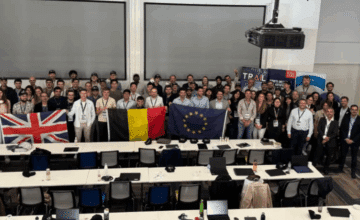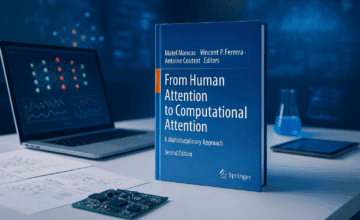Thesis Defense – Victor DELVIGNE
On Tuesday, 4/10/2022 , the event will take place at the Numédiart room of ISIA Lab (Boulevard Dolez 1st floor). The TEAMS link to attend virtually at 2:00 pm is available here: TEAMS.
On Thursday, 7/10/2022 , the event will take place at the Macquet room (Boulevard Dolez 1st floor). The TEAMS link to attend virtually at 5:30 pm is available here: TEAMS.
Language of the presentation: FR (slides are in English).
Thesis title
Studying Attention in Virtual Reality with Electroencephalography and Eye-Tracking
Abstract:
Attention Deficit Hyperactivity Disorder (ADHD) is the most prevalent psy- chiatric disease in childhood ( 5% of the total population). Several treatments and diagnoses have been designed, however, some of them present a high price, a low accuracy or unfavourable side effects. Neurofeedback training, a
novel method to help in the reduction of attention-related symptoms consists of a real-time representation of the brain activity (in an understandable form) to teach the participants how to selfregulate their symptoms. To develop applications proposing neurofeedbacks, several aspects have been considered in this thesis.
First, participants’ attention has to be objectively recorded and assessed based on several physiological signals. PhyDAA, a corpus of Electroencephalogram (EEG) and eye-tracking signals have been recorded in VERA a framework composed of novel Virtual Reality (VR) environments specially designed for this task. These environments have been jointly developed with specialists in the field.
Second, with the advancement of Artificial Intelligence (AI), several novel signal processing techniques have been designed for biomedical signals analysis in order to estimate the attention state from physiological measurements.
Finally, a novel application reacting to participants’ attention state based on the insights made above has been developed. The goal of the latter is to maximize the video game effects on the participant’s attention. This application could help participants reduce attention-related disorders’ symptoms by
better detecting them.
Supervisor: Prof. Thierry Dutoit (UMONS)
Supervisor: Prof. Hazem Wannous (University of Lille)




